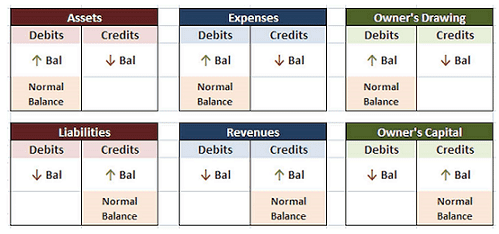- Solutions
- Industries
- Commercial Real Estate
- Enterprise Business Security Systems
- Coworking Space Security
- Apartment Building Access Control, Keyless Entry, and Video Surveillance
- Construction Site Security & Video Monitoring
- Law Firm Security – Access Control & Video Surveillance for Law Offices
- School Security & Visitor Management System
- Recycling & Scrap Yard Remote Surveillance System
- Government
- About Us
- Resources
- Covid-19
Controller vs CFO: 6 Key Differences to Understand
A controller often oversees the department leads within finance for each respective department tied to financial reporting. This may include the accounts payable lead, procurement lead, purchasing lead, financial reporting manager, or payroll manager. Although both the controller and CFO of a company are leaders in finance, they are often two separate positions responsible for different tasks. A controller is more likely to be entangled in general ledgers, trial balances, and financial reports being delivered to more senior management.
A controller also works with the external audit team, assists internal managers will budget preparation, and identifies areas of opportunity to mitigate risk and employ cost savings. Vacations and time off will not leave your company high and dry when you rely on internal controls. With an outsourced financial controller on your team, you will have access to expertise in accounting and bookkeeping when you need it.
Nonprofit Hiring Toolkit
The federal government predicts steady growth in the financial management sector, which includes CFOs and controllers. The estimate is that this employment sector will grow 19 percent by 2026. Use this Nonprofit CFO job description template to attract qualified candidates for your nonprofit organization who have extensive experience in Finance. For larger companies, controllers report up to a CFO or other executive. The controller is usually not part of the executive leadership team. Last, it is not an industry requirement to obtain a Certified Public Accountant (CPA), Certified Management Accountant (CMA), Chartered Financial Analyst (CFA), or any other type of licensure.

A CFO or VP of Finance are often higher-level positions that are on the executive team. Meanwhile, a controller is usually a lower-level position that is less involved in strategic planning or external affairs and mostly involved in internal reporting. A comptroller is typically a more senior position that is more commonly found in cfo vs controller government or nonprofit organizations. A controller and comptroller simply have similar roles in different industries. Financial controllers are in charge of the past; they review historical transactions and ensure reporting is done correctly. These reports may then be delivered to a financial planning and analysis (FP&A) leader.
Financial Controller vs CFO FAQs
In general, we see businesses of less than $25 million in revenue make use of a “Fractional” or part time CFO — meeting with them on a monthly basis to review results and plan strategy. A controller’s duties, however, tend to be weekly or daily, even in a business with as little as $1 million in revenue. An entry-level vice president of finance makes $95,800, rising to $109,000 at mid-career and $144,700 by the later stage of their career. Every industry from government to dairy farming has a need for good financial management. If the industry the comptroller or CFO wants to work in has specialized accounting requirements, job seekers will need a year or two of experience in the industry.
- So if you come across a company with a controller but not a CFO, or vice versa, it might be interesting to make a polite inquiry about why.
- A controller must often have around at least 10 years of professional experience, though larger public companies will often require more.
- We also use different external services like Google Webfonts, Google Maps, and external Video providers.
- Some investor-backed companies, such as Software as a Service (SaaS) businesses, have more sophisticated needs than other companies with the same annual revenue.
- A comptroller or controller focuses on keeping the company’s accounts and preventing errors or fraud in money handling or bookkeeping.
- With an outsourced financial controller on your team, you will have access to expertise in accounting and bookkeeping when you need it.
Indinero’s fractional CFO services can help your business grow smoothly. We’ll work with you to develop a financial strategy that meets your specific goals. Our team of experts will help you make smart decisions about how to best allocate your resources. We’ll also provide advice on ways to reduce costs and improve revenue. To find the right candidate for the nonprofit controller position, most organizations start with a job description. First, the job description acts as a filter for potential candidates, allowing them to learn more about the position before deciding to apply.
What’s the Difference Between a CFO and a Controller – and What Do I Need?
Depending on the size of your business and its stage of life, the role you choose for that leader might be a controller, CFO, or both. The clarity we provided above can help you make the right choice, but taking action is vital. Don’t wait until you have unchecked growth or are ready to investigate an IPO before getting a financed-minded person on your team to help guide strategic decisions.

And in other organizations, particularly small businesses, one person may assume both roles and go by both titles, working part-time in both capacities. Your company will typically want to consider moving from part-time or outsourced CFO services to an in-house CFO at around $50MM in annual revenue. Some investor-backed companies, such as Software as a Service (SaaS) businesses, have more sophisticated needs than other companies with the same annual revenue. That sophistication means the business may need contract CFO services at $500K, rather than $1MM, and could hire a full-time CFO at around $35MM, rather than $50MM. A CFO’s duties include developing financial plans, managing cash flow, reviewing financial statements, overseeing investments, and advising on ways to reduce costs and increase revenue. A CFO also works with the CEO to develop long-term plans for the company and sets financial goals.
According to Glassdoor, a controller makes a median of roughly $156,000 per year. This includes $111,000 per year of base pay and almost $45,000 in additional forms of compensation. The CFO is an executive, working in the c-suite along with the CEO, COO, or any other executive-level employees. Click here to learn more about outsourced CFO services from Haines & Lagerquist CPAs.
The two, of course, must be aligned in the company, working toward the same goals, but their positions fill different roles and serve different purposes that are necessary for achieving those unified goals. CFO Selections provides interim, fractional, project-oriented, and permanent placement, CFOs in non-profit and for-profit organizations in western, eastern and southwest Washington and in the Portland metro area. We also use different external services like Google Webfonts, Google Maps, and external Video providers.
Financial Controllers, CFOs and Technology
In this blog, we’ll break down the key difference between comptroller and controller, explain the role of a CFO, and help you determine which roles are essential to your business’s finance team. Jo-Anne Williams Barnes, is a Certified Public Accountant (CPA) and Chartered Global Management Accountant (CGMA) https://www.bookstime.com/ holding a Master’s of Science in Accounting (MSA) and a Master’s in Business Administration (MBA). Jo-Anne is a certified Sage Intacct Accounting and Implementation Specialist, a certified QuickBooks ProAdvisor, an AICPA Not-for-Profit Certificate II holder, and Standard for Excellence Licensed Consultant.

This FP&A director relies on their team to build budgets, forecasts, and long-term plans based on the future of the company. As every company will require different qualifications, there is no single career path to becoming a controller. However, many controllers get their start by working in the accounting field, often in public accounting.